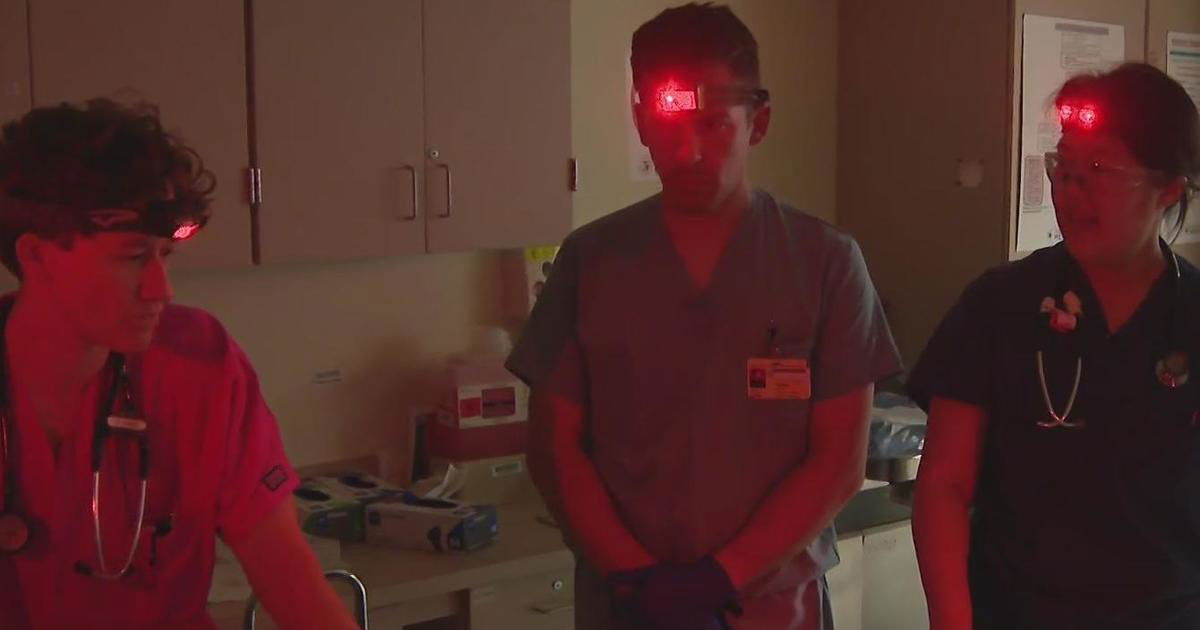Hospital trauma unit partners with the Navy for first-of-its-kind program

By Tara Molina
Click here for updates on this story
CHICAGO (WBBM) — A look inside Stroger Hospital’s Trauma Unit shows a program making a difference worldwide as a first-of-its-kind partnership with the Navy with naval officers working and training in Chicago year-round before deployment
They’re not in uniform, but they are Navy medical personnel participating in a simulation with a naval volunteer.
“We should be able to perform surgical care anywhere and at any time,” said Commander John Ruggero, Trauma Surgeon and Officer in charge of the Navy partnership.
It’s a first-of-its-kind program that others are now looking to replicate, made possible through a partnership with the U.S. Navy and Cook County Health. And they’re at Stroger for a reason.
“You walk through the trauma unit- it’s not uncommon on a busy night all these beds are full,” Ruggero said.
“The trauma we are seeing here mimics a lot of what people would see in a military situation,” said Dr. Fred Starr of Stroger Hospital and Cook County Health.
Stroger sees more than 5,000 trauma patients annually. About 25% of those cases are gun or knife injuries.
“In military treatment facilities, we usually only take care of patients who are active duty, veterans, or associated with the military.”
Lieutenant Commander Kelly Peng, the emergency medicine doctor on the team, is working here now. They will work together for a year before they are deployed.
Each team has seven members: a general surgeon, ER physician, PA, CRNA, nurse, surgical tech, and respiratory tech.
“It’s so great to work together as a team. To get to know our team,” Peng said.
Once they’re deployed…
“We are the medical providers for the Marine Corps when they’re deployed as well,” Ruggero said. “And Special Operations forces should we be tasked to support their missions as well. Not just at sea where we are dealing with things on the ship also on land.”
Another team moves in, but the same crew will return to Stroger after deployment to sustain their skills. But they aren’t the only ones learning.
“Everything from trauma surgery really was learned from previous military conflicts, Starr said. “Really, what they’re doing out in the field, they’re bringing back to us and we are learning from them when they are coming back.”
It’s why it’s already making such a difference.
“It’s great when you have the ability to function that well in a high-pressure environment and save someone’s life,” Ruggero said.
The team that’s been working here for the past year will soon deploy.
Please note: This content carries a strict local market embargo. If you share the same market as the contributor of this article, you may not use it on any platform.